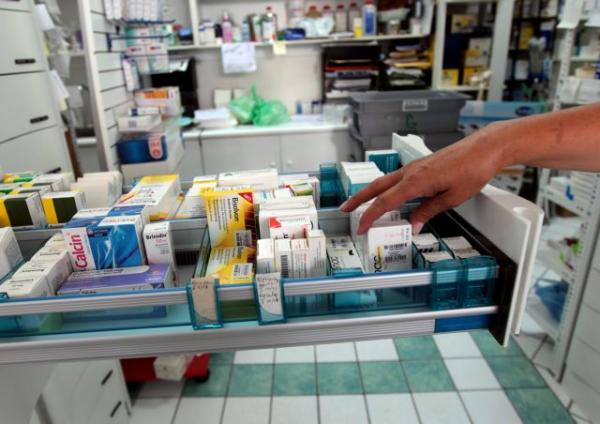The problem of the lack of medicines in the Greek market has reached explosive proportions, resulting in an acute social problem and insecurity prevailing among thousands of patients.
The Panhellenic Union of the Pharmaceutical Industry (PEF) intervened on the issue, stressing that “at this time, 42 Greek drug producing factories are operating day and night at full capacity, to meet the needs of Greek patients”.
As PEF points out, “Greek production continues unabated, despite the adverse environment made up by the continuous price reductions in old drugs, the huge clawback and overtaxation that reaches 70%, the increase in production costs and high inflation”.
Charge absorption
According to PEF, these charges are absorbed entirely by the pharmaceutical companies and are not passed on to consumers. Especially in the last year, there have been huge problems in the global supply chain of medicines and raw materials, resulting in long delays and shortages in the supply of the market. Unfortunately, the phenomenon became more intense due to the seasonal upsurge of infections after two years of significant recession, emphasizes the PEF.
In her announcement, she notes that in Greece we are in a much better position than other European countries due to the existence of domestic production and adds that from September this year until November, the Greek pharmaceutical industries produced more than 25 million packages of medicines every month . If this had not been done, today we would be facing huge shortages even of drugs for chronic conditions such as anti-lipid, anti-hypertensive and heart failure drugs. At the same time, the Greek pharmaceutical industry continues to continuously supply the country’s hospitals with essential medicines.
Pharmas: Shortages are a global phenomenon
For its part, the Association of Pharmaceutical Enterprises of Greece (SFEE), following a meeting of all the involved bodies at the Ministry of Health, pointed out that “there are no shortages of medicines in the Hospitals or in the pharmacies of the National Health System, with few exceptions. The problem of shortages is observed in private pharmacies and mainly concerns drugs with active substances such as paracetamol, amoxicillin and some pulmonary inhaled drugs. The problems of drug availability that have appeared in our country are of a much smaller scale than in other EU countries.”
The Association underlines that this type of shortage is a global phenomenon due to a lack of raw materials and packaging materials combined with the seasonal increase in infections, which has been particularly strong this year. According to the Association, this problem is expected to be gradually corrected in the coming months, while the use of generic drugs that are widely available is recommended, always under the guidance of the attending physician or even the pharmacist. Stockpiling by consumers should also be avoided, as it exacerbates the problems and deprives our fellow citizens who need them of medicines.
He adds that with the implementation of the export ban on around 260 drugs, there are already signs of improvement, and it is expected to be even more significant on these elusive products in the near future. “It should not escape our attention that the phenomenon of parallel exports (re-export of drugs imported into the country to other European countries, not by the pharmaceutical companies, but by circles of the drug marketing chain, due to a price difference) is due to the fact that in our country we have some of the cheapest medicines in Europe”.
1,300 medicines below the lowest price in the Eurozone
According to the Association, more than 1300 medicines are – in contradiction with the current legislation – below the lowest price in the Eurozone, as a result of which their disposal is problematic and if they are withdrawn, they will be replaced by others that are much more expensive.
“The intention was expressed to examine this issue in order to maintain these drugs on the Greek market through targeted financial support. At the same time, the need for targeted actions that could support the production of necessary established drugs by the Greek Pharmaceutical Industry was emphasized, thus avoiding the very expensive imports through IFET, but also improving the position of our own industry in the European market.”
The European pharmaceutical industry recognizes the importance of returning of medicine production, but also of raw materials to Europe, has focused on reducing dependence on India and China and is taking the necessary measures to implement this strategy, which of course requires time and investments both in Europe and Greece, reports SFEE . It concludes that its member companies – International and Greek – make continuous efforts to ensure the access of Greek patients to the necessary treatments, as the safeguarding of Public Health is a top priority.





